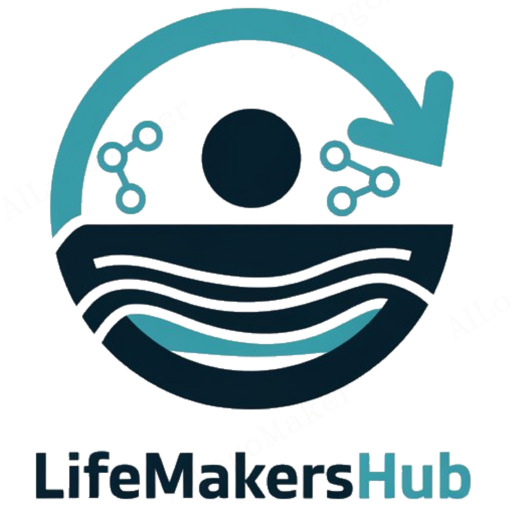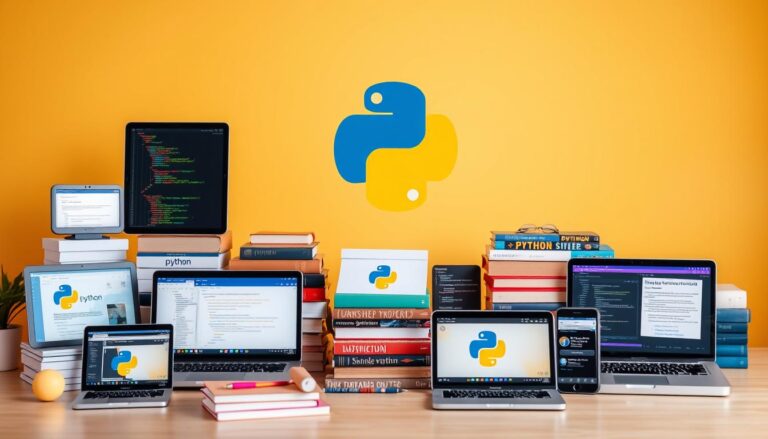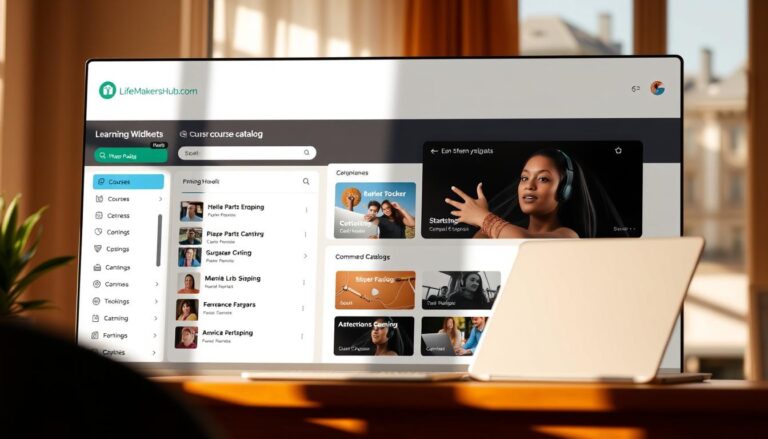Unlock Your Personal Development Potential
Feeling stuck in life is a common experience, especially during challenging times like the pandemic. It’s easy to fall into routines that leave you unfulfilled. But what if you could break free and unlock your true potential? Personal development is the key to transforming stagnation into growth.
This journey isn’t just about setting goals—it’s about understanding yourself deeply. Practices like Inner Work® encourage reflective growth, helping you identify what truly matters. Acknowledging that feeling of being stuck is the first step toward meaningful change.
Engaging in this process brings emotional and practical benefits. You’ll gain clarity, resilience, and a renewed sense of purpose. This article will guide you with actionable strategies to move from daily monotony to purposeful action.
Key Takeaways
- Personal development helps you overcome stagnation and unlock your potential.
- Reflective practices like Inner Work® foster deep self-awareness.
- Acknowledging feeling stuck is the first step toward change.
- This journey improves emotional well-being and resilience.
- Actionable strategies can guide you from routine to purpose.
Understanding the Self-Improvement Journey
The journey of self-improvement begins with recognizing the need for change. It’s not about following a universal formula but about looking inward to find clarity, purpose, and passion. This process is deeply personal and unique to each individual.
Uncovering the Need for Change
Many people feel stuck in routines that no longer serve them. The pandemic highlighted this for countless individuals, as daily monotony became a source of frustration. Internal signals like restlessness, lack of fulfillment, or a sense of stagnation often indicate it’s time for transformation.
Self-reflection is the first step. Ask yourself: What do I truly want? What’s holding me back? These questions help uncover the root of your desire for personal growth and set the stage for meaningful change.
The Impact on Daily Life
Daily routines shape our mental health and overall fulfillment. When these routines lack purpose, they can lead to stress, burnout, and dissatisfaction. Personal professional growth isn’t just about career advancement—it’s about creating a balanced, fulfilling life.
Studies show that 68% of individuals experience improved mental, emotional, and physical health through self-improvement. By addressing the need for change, you can break free from monotony and embrace a more purposeful lifestyle.
Remember, this journey is ongoing. It requires continuous effort, but the rewards—clarity, resilience, and fulfillment—are worth it.
Defining and Setting Your Personal Development Goals
Understanding your strengths and weaknesses is the first step toward growth. To achieve meaningful progress, you need to define clear goals that align with your values and aspirations. This process involves self-assessment, reflection, and actionable planning.
Identifying Core Strengths
Start by pinpointing what you’re naturally good at. These strengths are the foundation of your growth. Tools like the Whole Person Assessment can help you gain insights into your abilities. Reflect on past successes and feedback from others to identify patterns.
Ask yourself: What tasks energize me? Where do I excel? These questions can guide you toward recognizing your unique talents. Leveraging your strengths boosts confidence and sets the stage for improvement.
Mapping Areas for Growth
Next, identify areas where you can improve. This isn’t about focusing on weaknesses but about creating opportunities for growth. Use self-assessment tools to map out areas like emotional intelligence, career skills, or stress management.
Set specific, measurable, and attainable goals. For example, if you want to improve public speaking, attend a workshop and deliver at least two presentations in three months. This approach ensures your goals are actionable and aligned with your life values.
| Method | Purpose | Example |
|---|---|---|
| Whole Person Assessment | Identify strengths and weaknesses | Gain insights into emotional and professional skills |
| SMART Goals | Set actionable objectives | Improve public speaking by attending workshops |
| Self-Reflection | Understand personal values | Ask: What do I truly want to achieve? |
Remember, this is an ongoing journey. Continuously reassess your goals and adapt them as your life evolves. By focusing on your strengths and growth areas, you’ll unlock your potential and create a fulfilling path forward.
Personal Development: A Lifelong Investment
Growth isn’t a destination—it’s a continuous process that evolves with time. Unlike short-term goals, personal development is a lifelong commitment. It’s about consistently improving yourself to adapt to life’s changes and challenges.
Think of it like lifelong learning. Just as skills in your career need updating, so do your personal abilities. Studies show that 74% of workers recognize the need to learn new skills to stay ahead. This mindset applies to all areas of life, from relationships to health.
Continuous improvement strengthens resilience. It prepares you to face setbacks and seize opportunities. For example, industry leaders like Elon Musk and Oprah Winfrey attribute their success to constant learning and adaptability.
Here’s why investing in yourself pays off:
- Better Health: Regular self-improvement reduces stress and boosts mental well-being.
- Stronger Relationships: Improved communication skills lead to deeper connections.
- Career Advancement: Lifelong learners are 30% more likely to achieve their goals.
This journey isn’t just about achieving milestones. It’s about creating a fulfilling life. As you grow, you’ll find new passions, overcome challenges, and unlock your full potential.
Remember, growth is a marathon, not a sprint. Start small, stay consistent, and watch how your efforts compound over time. The rewards—better health, stronger relationships, and professional success—are worth it.
Developing a Mindset for Change and Growth
Adopting a growth mindset is the foundation for overcoming challenges and achieving success. This mindset is based on the belief that abilities and intelligence can be developed through effort and time. It’s a powerful tool for transforming setbacks into stepping stones.
Research shows that individuals with a growth mindset are 47% more likely to seek out challenges rather than avoid them. This mindset fosters resilience, innovation, and a willingness to learn. It’s not just about improving skills—it’s about transforming how you approach life.
Cultivating a Growth Mindset
To cultivate a growth mindset, start by reframing setbacks as learning opportunities. Instead of seeing failure as a dead end, view it as a chance to grow. This shift in perspective can reduce anxiety and increase motivation.
Here are actionable steps to embrace this mindset:
- Reflect Daily: Spend a few minutes each day analyzing your thoughts and habits. Are they aligned with growth?
- Seek Feedback: Actively ask for constructive criticism to identify areas for improvement.
- Celebrate Effort: Focus on the process, not just the outcome. Recognize the hard work behind your achievements.
Real-life examples highlight the power of a growth mindset. Leaders like Elon Musk and Oprah Winfrey attribute their success to continuous learning and adaptability. They view challenges as opportunities to innovate and grow.
In professional settings, organizations that foster a growth mindset see a 30% improvement in employee engagement. This mindset encourages collaboration and creativity, driving both self and team success.
Finally, remember that cultivating a growth mindset is a continuous process. It requires consistent effort and a willingness to step out of your comfort zone. Over time, this mindset will enhance your resilience, relationships, and leadership abilities.
Building a Personalized Development Plan
A well-structured roadmap can transform your aspirations into actionable steps. Whether you’re aiming for career growth or improving your overall well-being, a personalized plan keeps you focused and motivated. Here’s how to create one that works for you.
Start by defining your goals. What do you want to achieve in your career, health, or relationships? Break these goals into smaller, measurable milestones. For example, if you want to improve your public speaking, set a goal to attend a workshop within three months.
Next, identify resources to support your journey. Online courses are a great way to build skills efficiently. Platforms like Coursera or LinkedIn Learning offer structured programs tailored to various industries. Pair these with accountability partners—friends or mentors who can keep you on track.
“A goal without a plan is just a wish.”
Balancing professional obligations with growth goals can be challenging. Prioritize tasks by creating a weekly schedule. Dedicate specific time blocks for learning, exercise, and nurturing your relationships. This approach ensures you make progress without feeling overwhelmed.
Finally, track your progress regularly. Use tools like journals or apps to monitor milestones and adjust your plan as needed. Studies show that 75% of individuals who set specific goals are more likely to achieve them. A tailored plan empowers you to take decisive action every day.
| Step | Action | Example |
|---|---|---|
| Define Goals | Identify what you want to achieve | Improve public speaking skills |
| Set Milestones | Break goals into smaller steps | Attend a workshop in three months |
| Find Resources | Use online courses and mentors | Enroll in a Coursera program |
| Track Progress | Monitor and adjust your plan | Use a journal to record achievements |
Remember, a personalized plan isn’t just about achieving goals—it’s about creating a fulfilling life. By focusing on your health, relationships, and skill-building, you’ll unlock your full potential and thrive in every area.
Enhancing Self-Awareness Through Inner Work

Self-awareness is the foundation of meaningful growth and transformation. It’s about understanding your thoughts, emotions, and behaviors on a deeper level. Inner Work®, a reflective practice, helps you explore these areas to gain clarity and make better decisions.
This process isn’t just about self-discovery—it’s a way to improve emotional intelligence and overall well-being. By engaging in reflective thinking, you can identify patterns that serve or hinder your progress. Let’s explore how to make this a part of your daily routine.
Practices for Reflective Thinking
One effective way to deepen self-awareness is through mindfulness exercises. These practices help you stay present and observe your thoughts without judgment. For example, spending 10 minutes daily in meditation can increase your awareness of emotional triggers.
Journaling is another powerful tool. Writing down your thoughts and feelings helps you process experiences and uncover hidden patterns. Studies show that individuals who journal regularly are 25% more effective in their roles.
“Self-awareness is the key to unlocking your potential and building resilience.”
Here are actionable steps to incorporate reflective practices into your life:
- Set aside time daily: Dedicate 10-15 minutes for mindfulness or journaling.
- Ask reflective questions: What emotions am I feeling? Why did I react that way?
- Seek feedback: Ask trusted friends or mentors for insights into your blind spots.
Improved self-awareness enhances emotional intelligence, a critical area for personal and professional success. It helps you manage stress, build stronger relationships, and make informed decisions. By making space for introspection, you’ll create a foundation for lasting growth.
Strengthening Emotional Intelligence and Resilience
Emotional intelligence and resilience are essential skills for navigating life’s challenges. These abilities help you manage stress, adapt to change, and thrive in both personal and professional settings. By developing these skills, you can transform setbacks into stepping stones for growth.
Techniques for Managing Stress
Stress is a natural part of life, but how you handle it makes all the difference. Mindfulness practices, such as meditation and deep breathing, are proven ways to reduce stress levels. For example, spending just 10 minutes daily on mindfulness can lower stress by up to 30%.
Here are practical techniques to incorporate into your routine:
- Breathing Exercises: Practice deep breathing to calm your mind and body during stressful moments.
- Mindfulness Meditation: Focus on the present moment to reduce anxiety and improve emotional awareness.
- Journaling: Write down your thoughts and feelings to process emotions and identify patterns.
“Mindfulness is the key to unlocking a calmer, more focused mind.”
Building Resilience Through Challenges
Resilience is the ability to bounce back stronger after facing adversity. It’s not about avoiding challenges but learning from them. Studies show that individuals with high resilience are better equipped to handle stress and recover from setbacks.
Here’s how to build resilience:
- Reframe Setbacks: View challenges as opportunities for growth rather than failures.
- Seek Support: Lean on friends, family, or mentors for guidance and encouragement.
- Practice Self-Compassion: Be kind to yourself during tough times to maintain emotional balance.
Real-life examples highlight the power of resilience. Many successful individuals attribute their achievements to overcoming adversity and using it as a catalyst for growth.
By strengthening emotional intelligence and resilience, you’ll enhance your ability to navigate life’s ups and downs. These skills not only improve your well-being but also enrich your relationships and career. Start small, stay consistent, and watch how these practices transform your life.
Integrating Physical Health into Personal Growth
Your physical health is a cornerstone of achieving lasting growth and success. A healthy body supports mental clarity, emotional stability, and the energy needed to pursue your goals. By focusing on nutrition, exercise, and recovery, you create a foundation for sustained transformation.
Research shows that regular physical activity improves emotional regulation and focus. For example, studies indicate that individuals who exercise regularly are 30% more likely to manage stress effectively. This connection between physical and mental well-being is essential for navigating change and achieving your aspirations.
Nutrition, Exercise, and Recovery
Balanced nutrition fuels your body and mind. Incorporate whole foods like fruits, vegetables, and lean proteins into your diet. Avoid processed foods that can lead to energy crashes and mood swings. A well-nourished body is better equipped to handle challenges and maintain focus.
Regular exercise is equally important. Activities like walking, yoga, or strength training boost endorphins, reduce stress, and improve overall health. Aim for at least 30 minutes of moderate exercise five times a week. Consistency is key to reaping the benefits.
Recovery is often overlooked but critical. Ensure you get 7-9 hours of sleep nightly and incorporate rest days into your fitness routine. Proper recovery prevents burnout and keeps you energized for the long haul.
“Physical health is not just about fitness—it’s about creating a balanced life that supports your goals.”
Here’s how to integrate these practices into your routine:
- Plan Meals Ahead: Prepare nutritious meals in advance to avoid unhealthy choices.
- Schedule Workouts: Treat exercise like an important appointment to stay consistent.
- Prioritize Sleep: Create a bedtime routine to improve sleep quality.
Real-life examples highlight the power of physical health. Many individuals have transformed their lives by adopting fitness routines, improving their mental clarity, and achieving greater success. By making physical health a priority, you’ll unlock your full potential and thrive in every area of life.
| Practice | Benefit | Example |
|---|---|---|
| Balanced Nutrition | Boosts energy and focus | Include whole foods in daily meals |
| Regular Exercise | Reduces stress and improves mood | 30 minutes of walking five times a week |
| Proper Recovery | Prevents burnout and enhances performance | 7-9 hours of sleep nightly |
Remember, physical health is not a one-time effort but a lifelong commitment. By embracing these practices, you’ll build resilience, improve communication skills, and achieve lasting success. Start small, stay consistent, and watch how your efforts transform your life.
Boosting Mental Fitness with Continuous Learning
Mental fitness is a key driver of success in both professional and personal realms. Just as physical exercise strengthens the body, continuous learning sharpens the mind. It’s about staying curious, adaptable, and ready to tackle new challenges. Lifelong learning isn’t just a habit—it’s a pathway to mental agility and growth.
Research shows that engaging in lifelong learning can increase cognitive performance by 20%. This means better problem-solving skills, improved memory, and enhanced focus. By challenging your brain regularly, you unlock its full potential and build resilience in the face of change.
Embracing Lifelong Learning Opportunities
Online courses and workshops are excellent tools for continuous education. Platforms like Coursera and BetterUp offer programs designed to boost cognitive skills and foster growth. For example, courses on critical thinking or data analysis can enhance your professional toolkit while keeping your mind active.
Here’s how lifelong learning benefits you:
- Enhanced Mental Agility: Learning new skills keeps your brain flexible and adaptable.
- Improved Problem-Solving: Continuous education sharpens your ability to tackle complex challenges.
- Greater Resilience: A learning mindset helps you bounce back from setbacks.
“The capacity to learn is a gift; the ability to learn is a skill; the willingness to learn is a choice.”
Popular courses like Yale’s The Science of Well-Being or Harvard’s CS50 Introduction to Computer Science are great starting points. These programs not only build skills but also foster a sense of accomplishment and purpose.
Fostering a culture of lifelong learning can help you harness your full potential. Whether it’s through online courses, workshops, or self-study, the key is consistency. Dedicate time each week to learning something new, and watch how it transforms your mental fitness and overall well-being.
By investing in continuous education, you’re not just improving your skills—you’re building a sharper, more resilient mind. Start today and unlock the limitless potential within you.
Cultivating Strong Social Connections
Strong social connections are essential for both happiness and success. They provide emotional support, reduce stress, and enhance overall well-being. Research shows that individuals with meaningful relationships are 50% more likely to thrive in their personal and professional lives.
Building a network of supportive relationships is a key part of self-improvement. These connections foster resilience, improve communication skills, and create a sense of belonging. What works for one person may be different for everyone, but the benefits of strong bonds are universal.
Here’s how to cultivate deeper, more meaningful interactions:
- Engage in Active Listening: Pay attention to others’ thoughts and feelings to build trust and understanding.
- Join Online Communities: Platforms like LinkedIn or Meetup connect you with like-minded individuals.
- Practice Empathy: Put yourself in others’ shoes to strengthen emotional connections.
“The best predictor of a happy, healthy life is the quality of your relationships.”
Effective communication is vital for maintaining these connections. Whether it’s through face-to-face conversations or digital interactions, clear and honest communication fosters trust and mutual respect. Self-improvement is a journey that looks different for everyone, but it’s often enriched by the wisdom and feedback of others.
Here’s a breakdown of strategies to strengthen social connections:
| Strategy | Benefit | Example |
|---|---|---|
| Active Listening | Builds trust and understanding | Repeat key points to show engagement |
| Online Communities | Connects you with like-minded individuals | Join a LinkedIn group in your industry |
| Empathy Practice | Strengthens emotional bonds | Ask open-ended questions to understand others’ perspectives |
By nurturing these connections, you’ll enhance your emotional well-being and create a support system that fuels your growth. Remember, personal growth is a shared journey, and the collective wisdom of your network can guide you toward a more fulfilling life.
Using Professional Coaching as a Development Tool
Professional coaching is a powerful step toward unlocking your full potential. It’s more than just guidance—it’s a structured tool that helps you set clear goals, overcome obstacles, and achieve meaningful results. Whether you’re navigating career challenges or seeking personal growth, coaching provides the support and accountability you need to succeed.
Coaching offers a unique opportunity to accelerate growth. A coach helps you define your objectives, create actionable plans, and stay on track. For example, BetterUp’s coaching programs have helped individuals improve resilience and take decisive action. This structured approach ensures you’re not just dreaming about success but actively working toward it.
Real-life success stories highlight the transformative impact of coaching. Many professionals credit their career advancements to the personalized feedback and mentorship they received. Coaches act as trusted partners, offering insights that help you navigate challenges and seize opportunities.
Here’s how the coaching process typically works:
- Goal-Setting: Define clear, achievable objectives tailored to your needs.
- Action Plans: Break goals into actionable steps with timelines.
- Progress Tracking: Regularly review achievements and adjust strategies as needed.
“Coaching is not about fixing problems—it’s about unlocking potential and creating lasting change.”
Investing in coaching is a strategic move for long-term growth. It’s an opportunity to gain clarity, build resilience, and achieve your aspirations. With a coach by your side, you’ll have the support and structure needed to turn challenges into stepping stones.
Consider coaching as a valuable tool in your journey. Whether you’re aiming for career advancement or personal fulfillment, the right coach can guide you toward success. Take the first step today and unlock your full potential.
Leveraging Online Courses and Workshops for Skill Building
Online courses have revolutionized the way we learn, offering flexibility and accessibility. With the e-learning market projected to reach $375 billion by 2026, it’s clear that digital education is here to stay. Whether you’re looking to advance your career or explore new interests, online courses provide a powerful tool for skill-building.
Choosing the right course starts with understanding your purpose. Are you aiming to gain technical skills, improve soft skills, or explore a new field? Platforms like Coursera, LinkedIn Learning, and edX offer thousands of courses tailored to diverse goals. For example, Yale’s The Science of Well-Being focuses on improving happiness, while Stanford’s Machine Learning course is ideal for tech enthusiasts.
Selecting the Right Course for Your Goals
Evaluating courses requires a clear mindset. Start by identifying your objectives and researching course content, duration, and reviews. Look for certifications that add value to your resume. For instance, AWS Certified Solutions Architect or Certified ScrumMaster certifications are highly regarded in their respective fields.
Here’s a quick guide to selecting the right course:
- Define Your Goals: What skills do you want to acquire or improve?
- Check Credibility: Choose courses from reputable institutions or platforms.
- Read Reviews: Learn from others’ experiences to gauge course quality.
Balancing Work and Study
Balancing work and study can be challenging, but it’s achievable with the right process. Create a schedule that allocates specific time blocks for learning. For example, dedicate 30 minutes daily or a few hours weekly to your course. This approach ensures consistent progress without overwhelming your routine.
Here are practical tips for managing your time effectively:
- Set Priorities: Focus on high-impact courses that align with your goals.
- Use Breaks Wisely: Utilize lunch breaks or commute time for short lessons.
- Stay Accountable: Share your goals with a friend or mentor for motivation.
“Online learning is not just about acquiring skills—it’s about transforming your mindset and unlocking your potential.”
Structured learning environments offer numerous advantages. They provide clear milestones, interactive content, and access to instructors and peers. For example, 80% of learners engage with online forums or live sessions, enhancing their learning experience. This collaborative approach fosters growth and keeps you motivated.
By leveraging online courses, you’re not just building skills—you’re investing in your future. Whether it’s advancing your career or exploring new passions, the digital learning landscape offers endless opportunities. Start today and take the first step toward achieving your purpose.
Transforming Setbacks into Opportunities for Growth
Setbacks are not roadblocks but stepping stones to greater achievements. They are a natural part of life and essential for building resilience. By reframing challenges, you can unlock valuable lessons and grow stronger.
Studies show that 85% of employees believe learning from failure is crucial for growth. Cultivating emotional intelligence helps you navigate challenges effectively. It allows you to process emotions and respond with clarity.
Here are strategies to turn setbacks into opportunities:
- Reflect and Adapt: Take time to analyze what went wrong and how you can improve. Reflection fosters self-awareness and actionable insights.
- Seek Feedback: Ask mentors or peers for constructive input. Their perspectives can highlight blind spots and guide your next steps.
- Practice Resilience: Regularly practice resilience techniques like mindfulness or journaling. These habits strengthen your ability to adapt and thrive.
“Failure is not the opposite of success; it’s part of the journey.”
Real-life examples illustrate the power of this mindset. Many successful individuals credit their achievements to overcoming adversity. For instance, Oprah Winfrey turned early career setbacks into a global media empire by staying resilient and focused.
Maintaining a healthy work-life balance ensures sustained growth and well-being. It prevents burnout and keeps you energized for challenges. Here’s how to integrate balance into your routine:
| Strategy | Benefit | Example |
|---|---|---|
| Set Boundaries | Prevents overcommitment | Designate specific work hours and stick to them |
| Prioritize Self-Care | Boosts mental and physical health | Schedule regular exercise and relaxation time |
| Delegate Tasks | Reduces stress and increases efficiency | Assign responsibilities to team members |
Every setback offers important lessons that propel future success. By embracing challenges, you’ll develop the intelligence and resilience needed to thrive. Start today and transform obstacles into stepping stones for growth.
Tracking Progress with a Comprehensive Development Toolkit
Tracking your progress is a vital aspect of achieving long-term success. Without structured tools, it’s easy to lose sight of your goals or miss opportunities for growth. A comprehensive toolkit helps you monitor achievements, stay accountable, and refine your strategies effectively.
One key aspect of progress tracking is using the right tools. Journals, apps, and scheduled reviews are excellent methods to measure your growth. For example, apps like MyFitnessPal or Todoist help you track habits and tasks daily, ensuring consistency and focus.
Setting periodic checkpoints is another essential aspect. These milestones allow you to recalibrate goals, celebrate wins, and identify areas for improvement. Studies show that individuals who review their progress monthly are 35% more likely to achieve their objectives.
“What gets measured gets managed. Tracking your progress ensures you stay on the path to success.”
An integrated toolkit should cover multiple areas, including mental, physical, and emotional growth. For instance, combining mindfulness apps with fitness trackers provides a holistic view of your well-being. This approach ensures balanced progress across all aspects of your life.
Data-driven insights are invaluable for adjusting strategies. Tools like StrengthsFinder or AI coaching platforms offer personalized feedback, helping you make informed decisions. By analyzing this knowledge, you can adapt your plans to stay aligned with your goals.
Consistent tracking also builds momentum and accountability. When you see tangible results, it motivates you to keep going. For example, 70% of employees believe structured plans are essential for career success and fulfillment.
Here’s how to build your toolkit:
- Choose the Right Tools: Use apps, journals, or trackers that align with your goals.
- Set Checkpoints: Schedule monthly or quarterly reviews to assess progress.
- Celebrate Wins: Acknowledge achievements to stay motivated.
- Adapt Strategies: Use data insights to refine your approach.
By integrating these practices into your daily routine, you’ll unlock the full potential of your growth journey. Start today and take the first step toward achieving your goals with confidence.
Optimizing Work-Life Balance for Sustained Growth

Balancing work and life is a challenge many professionals face in today’s fast-paced world. Achieving this equilibrium is essential for long-term success, both in your job and personal life. Without it, stress builds, productivity drops, and overall well-being suffers.
Studies show that over 60% of U.S. employees feel their work-life balance is out of sync. The pandemic blurred the lines between professional and personal spaces, making it harder to disconnect. However, with the right strategies, you can reclaim control and thrive in both areas.
Implementing Effective Time Management Strategies
Time management is the cornerstone of work-life balance. Start by prioritizing tasks and setting clear boundaries. For example, designate specific work hours and stick to them. This prevents work from spilling into personal time.
Here are actionable tips to manage your time better:
- Use Productivity Tools: Apps like Todoist or Pomodoro timers help you work in focused bursts.
- Set Daily Goals: Break your job tasks into manageable chunks to avoid overwhelm.
- Schedule Breaks: Regular pauses boost focus and reduce burnout.
“What gets scheduled gets done. Plan your day to maximize productivity and balance.”
Integrating small bouts of exercise into your routine also helps. Even a 10-minute walk during lunch can refresh your mind and improve focus. Physical activity reduces stress and boosts energy, making it easier to tackle your role effectively.
Real-life examples highlight the power of these strategies. Many professionals have successfully balanced demanding job roles with personal growth initiatives by prioritizing self-care and setting boundaries. For instance, a manager who schedules time for exercise and family activities reports higher productivity and job satisfaction.
Effective time management not only reduces stress but also increases productivity. By experimenting with different techniques, you’ll find what works best for your unique role and lifestyle. Start small, stay consistent, and watch how these changes transform your work-life balance.
Conclusion
Embarking on a journey of self-improvement can unlock endless possibilities. Throughout this article, we’ve explored the importance of introspection, setting clear goals, and tracking progress. These steps are the foundation for meaningful growth and transformation.
Physical health, mental fitness, and emotional intelligence are deeply interconnected. Strengthening one area often enhances the others, creating a balanced path to success. For example, regular exercise boosts mental clarity, while mindfulness improves emotional resilience.
Now is the time to take action. Start by enrolling in a coaching program or exploring online courses to build a new skill. These resources provide structure and accountability, helping you stay on track. Whether it’s improving your communication skill or mastering a new skill, every step counts.
Remember, growth is a continuous process. By committing to lifelong learning and self-reflection, you’ll unlock your full potential. Take the first step today—your future self will thank you.
FAQ
Why is self-improvement important in daily life?
How do I identify areas for growth in my life?
What role does emotional intelligence play in personal growth?
How can I balance work and personal development?
What are some effective ways to build resilience?
How does physical health contribute to personal growth?
What’s the best way to track my progress in self-improvement?
Can online courses help with skill-building?
How do I turn setbacks into opportunities for growth?
What’s the importance of social connections in personal growth?
Source Links
- What Is Personal Development and Why Is It Important?
- The Ultimate Guide to Personal Development: Unlock Your Potential | ProfileTree
- Unlock Your Full Potential: Strategies for Personal Development | Flowster
- The Difference Between Personal Growth & Personal Development — Danielle A. Vann – Get Your Life Together, Girl
- A Guide to Making It a Part of Your Daily Life – Mind, Body and Soul
- How to Start Your Personal Development Journey
- How to set personal development goals for your life and work — Calm Blog
- What Are Professional Development Goals? 10 Examples + How to Set Them
- What are Personal Development Goals for Work?
- Take Charge Of Your Personal Growth To Thrive Amidst Change
- The Importance of Lifelong Learning and Personal Development
- Personal Development: The Lifelong Quest for a Well-rounded ‘You’
- Guide to Developing a Growth Mindset
- How To Develop a Growth Mindset and Change Your Life
- How to Create a Personal Growth and Professional Development Plan
- A Personal Development Plan (PDP) Guide & Template
- Self-Awareness: What It Is, Why It Matters, and How to Develop It
- The Power of Awareness: How to Increase Your Self-Awareness for Personal and Professional Growth – Inner Talk Coach
- Self-Awareness: How It Develops and Why It Matters
- Improving Emotional Intelligence (EQ): Expert Guide
- Developing resilience and harnessing emotional intelligence
- Emotional Intelligence in Leadership: Why It’s Important
- Influence of Physical Exercise on Psychological Well-Being of Young Adults: A Quantitative Study
- Physical Activity and Physical Education: Relationship to Growth, Development, and Health – Educating the Student Body
- How Personal Growth and Lifelong Learning Boost Brain Health and Neuroplasticity
- No title found
- 7 Tips to Build Stronger Connections
- Strong Social Connections are Important for our Well-Being
- The Power of Social Health: Building Stronger Connections
- 5 Ways Coaching Can Supercharge Your Professional Development
- Professional Coaching and Development: Everything You Need to Know – Caliper Corporation
- The Role of Coaching in Personal and Professional Development
- Leveraging Online Resources for Continuous Learning in Tech
- "Leveraging Online Courses for Skill and Career Development"
- Leveraging Online Learning Platforms For Professional Development – FasterCapital
- Turning Setbacks into Opportunities for Growth – Pascoe Workforce Solutions
- Transforming Career Setbacks Into Career Success
- I Tested the Best Personal Development Tools for Your Growth – Giodella
- How to Create a Data-Backed Personal Development Plan to Reach Your Goals – Cangrade
- 10 Best Personal Development Tools to Reach Your Goals in 2025
- 12 Tips to Achieve and Maintain a Good Work-Life Balance
- How to Improve Your Work-Life Balance – businessnewsdaily.com
- Personal Development: Nurturing Growth and Self-Improvement
- Creating a Personal Development Plan for Career Advancement | ICON news and blogs
- What Is Personal Development and Why Is It Important?







